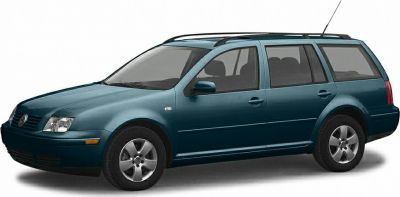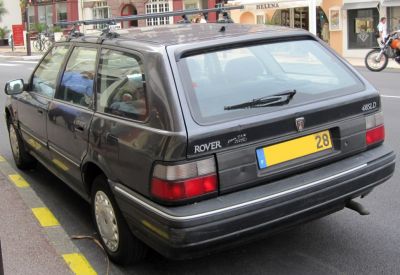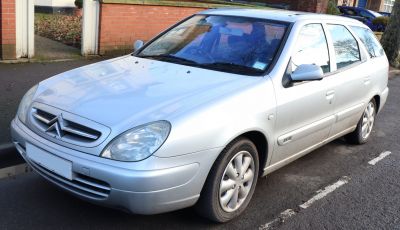 1997 Peugeot 306 Break (7E) Dimensions, Size & Specs
1997 Peugeot 306 Break (7E) Dimensions, Size & SpecsMeasurements of the 1997 Peugeot 306 Break, engineered for optimal performance and comfort
| Dimensions | |
|---|---|
| Length: | 4338 mm170.8 in14.2 ft |
| Width: | 1680 mm66.1 in5.5 ft |
| Height: | 1415 mm55.7 in4.6 ft |
| Trunk Capacity: | 440-442 liter15.5-15.6 cu ft |
| Trunk Capacity (Max): | 1510-1512 liter53.3-53.4 cu ft |
| Weight Specifications | |
| Curb Weight: | 1065-1205 kg2348-2657 lbs |
| Maximal permitted Weight: | 1550-1665 kg3417-3671 lbs |
| Tire Specifications | |
| Rims Size: |
|
| Tire Sizes: |
|
The Peugeot 306 Break (7E), produced from 1997 to 2002, is a versatile compact station wagon that balances practical dimensions with efficient use of space. Measuring 4338 mm (170.8 inches) in length, 1680 mm (66.1 inches) in width, and standing 1415 mm (55.7 inches) tall, the 306 Break fits comfortably in urban and suburban environments while providing ample interior room. It features a curb weight ranging between 1065 and 1205 kg (2349 to 2656 lbs), making it relatively lightweight within its class, which contributes to its nimble handling and fuel efficiency.
Designed with family and utility in mind, the 306 Break offers a generous luggage capacity of 440 to 442 liters (15.5 to 15.6 cubic feet) with rear seats upright, expanding impressively to 1510 to 1512 liters (53.3 to 53.4 cubic feet) when the rear seats are folded down. This flexibility makes it an ideal choice for carrying bulky items or larger cargo loads.
The car rides on 14-inch rims as standard, with tire size options including 185/65 R14, 165/70 R13, and 195/55 R15, allowing for a balance between comfort, grip, and performance. The maximum weight capacity ranges from 1550 to 1665 kg (3417 to 3671 lbs), accommodating passengers and cargo with ease.
Overall, the Peugeot 306 Break (7E) stands out as a practical and well-sized station wagon from the late 1990s and early 2000s. Its compact footprint combined with flexible cargo space and modest weight provides a competitive edge in the compact estate segment, making it suitable for daily commuting and family trips alike.
Discover the standout features that make the 1997 Peugeot 306 Break a leader in its class
Have a question? Please check our knowledgebase first.
The Peugeot 306 Break (7E), produced between 1997 and 2002, measures 4338 mm (170.8 inches) in length, 1680 mm (66.1 inches) in width, and 1415 mm (55.7 inches) in height. These dimensions make it a compact yet practical station wagon, offering a balanced profile suitable for urban and suburban driving.
The curb weight of the Peugeot 306 Break (7E) varies from 1065 kg (2349 lbs) to 1205 kg (2657 lbs), depending on specific configurations and trim levels. The maximum permissible weight ranges from 1550 kg (3417 lbs) to 1665 kg (3670 lbs), allowing for substantial passenger and cargo loading while maintaining road safety and performance.
The luggage capacity of the Peugeot 306 Break (7E) with the rear seats upright is approximately 440 to 442 liters (15.5 to 15.6 cubic feet). When the rear seats are folded down, this capacity expands significantly to between 1510 and 1512 liters (53.3 to 53.4 cubic feet), making it highly versatile for transporting larger loads while retaining passenger flexibility.
Yes, the Peugeot 306 Break (7E) can comfortably fit into a standard residential garage. With a length of 4338 mm (170.8 inches), width of 1680 mm (66.1 inches), and height of 1415 mm (55.7 inches), it fits within typical garage dimensions, which usually accommodate vehicles up to approximately 5 meters (196.9 inches) long and 2.5 meters (98.4 inches) wide. This makes parking and storage convenient for everyday use.
The Peugeot 306 Break (7E) typically uses 14-inch rims. The tire sizes compatible with this model include 185/65 R14, 165/70 R13, and 195/55 R15. These tire dimensions strike a balance between ride comfort, handling, and efficiency, suited for the compact station wagon's dynamic and practical driving characteristics.
With a relatively low height of 1415 mm (55.7 inches), the Peugeot 306 Break (7E) offers a sleek, aerodynamic profile that enhances fuel efficiency and stability at higher speeds. The station wagon design balances spacious interior volume with reduced air drag, contributing to an enjoyable driving experience characterized by agility and efficient performance, especially in urban and highway scenarios.
Compared to its predecessor, the earlier Peugeot 306 station wagon versions before 1997, the 306 Break (7E) maintained similar dimensions but featured subtle refinements in design and interior volume. The 7E generation offered improved luggage capacity and slightly enhanced overall dimensions to accommodate evolving consumer demands for space and practicality without sacrificing the compactness native to the 306 series.
In comparison to other station wagons of the late 1990s, such as the Volkswagen Golf Variant or Ford Focus Wagon, the Peugeot 306 Break (7E) was compact yet competitive in terms of length (4338 mm / 170.8 in) and cargo capacity. While some competitors were marginally larger, the 306 Break balanced maneuverability with practical load space, making it an attractive choice for drivers seeking a smaller but versatile wagon.
The Peugeot 306 Break (7E) has a maximum weight capacity ranging from 1550 kg (3417 lbs) to 1665 kg (3670 lbs), depending on variations in trim and equipment. This figure represents the combined total of vehicle weight, passengers, cargo, and accessories. The capacity ensures enough allowance for multiple passengers with luggage or sporting equipment, supporting the wagon's role as a practical vehicle for family and leisure use.
The station wagon (Break) body style of the Peugeot 306 (7E) offers enhanced cargo space and flexibility compared to hatchback or sedan versions of the same generation. With up to 1512 liters (53.4 cubic feet) of luggage space when folding the rear seats, it caters excellently to families or those needing extra storage. Additionally, it retains the compact driving dynamics and efficiency of the Peugeot 306 lineup, delivering a balanced mix of utility and urban friendliness.
Discover similar sized cars.

| Production: | 1998-2005 |
|---|---|
| Model Year: | 1999 |
| Length: | 4409 mm173.6 in |
| Width: | 1735 mm68.3 in |
| Height: | 1473-1485 mm58.0-58.5 in |

| Production: | 1993-1998 |
|---|---|
| Model Year: | 1994 |
| Length: | 4365 mm171.9 in |
| Width: | 1680 mm66.1 in |
| Height: | 1390 mm54.7 in |

| Model Year: | 2017 |
|---|---|
| Length: | 4405 mm173.4 in |
| Width: | 1750 mm68.9 in |
| Height: | 1470-1485 mm57.9-58.5 in |

| Production: | 2003-2005 |
|---|---|
| Model Year: | 2003 |
| Length: | 4369 mm172.0 in |
| Width: | 2014 mm79.3 in |
| Height: | 1420 mm55.9 in |

| Production: | 2000-2003 |
|---|---|
| Model Year: | 2000 |
| Length: | 4369 mm172.0 in |
| Width: | 1975 mm77.8 in |
| Height: | 1420 mm55.9 in |
